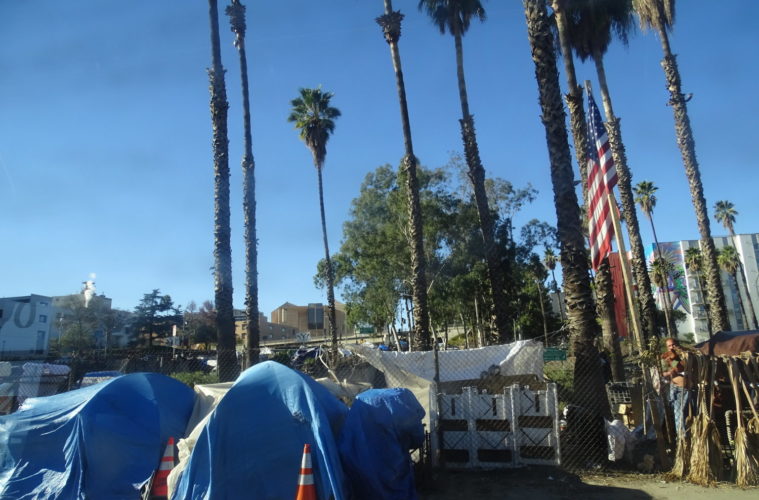Listing several issues at the root of the homeless crisis, Heidi Marston resigned as executive director of the Los Angeles Homeless Services Authority (LAHSA) on Monday.
In a Medium post, Marston said that Los Angeles has often taken the “easier path” in its attempts to address issues with the homeless, stating that people in power would often attack the most visible problems, but lacked a macro view of the crisis.
“LAHSA and our system partners work miracles every day and unfortunately, they will continue to hit a wall until there are fundamental shifts made in the way we address homelessness in LA and across the country,” Marston said in a statement. “We all must challenge ourselves beyond the existing infrastructure; we cannot challenge systems and simultaneously keep people trapped in them.”
She continued by saying LAHSA took the blame for the rising number of homeless individuals, but decisions on homeless outreach were “largely dictated by the City and County of Los Angeles,” while at the same time underfunding LAHSA and creating rules that “hamstrung” their efforts.
In 2020, an average of 205 homeless people were housed in L.A., while an average of 225 new individuals were driven to homelessness.
“When one person is housed, more than one person falls into the cycle,” Marston said. “In Los Angeles, we have been housing our homeless population at record numbers, even as the crisis continues to expand.”
In addition to creating spaces for homeless people, Marston stressed the lack of livable wages in Los Angeles. Even within her own jurisdiction, Marston said LAHSA employees earned $33,119 per year, something she changed in 2021, making sure none of its employees made fewer than $50,000 per year.
“The employees of the Los Angeles Homeless Services Authority should not make so little that they qualify for homeless services themselves,” Marston said. “We cannot simply build our way out of this problem. If people keep falling into homelessness at a rate faster than we are housing them, the crisis will never end.”
A final point made by Marston came in the form of challenging people to “demand leaders” to make commitments to changing the cycle of homelessness.
“Creating this supply will be difficult and require sacrifice from those with power and those who profit from restrictive zoning laws and high property values,” Marston said. “Homelessness is a crisis we made. We can unmake it if we only have the will.”
More than 60,000 people were experiencing homelessness in L.A. prior to the pandemic and it is estimated that the number may have climbed to more than 80,000 in the past two years.
Advertising disclosure: We may receive compensation for some of the links in our stories. Thank you for supporting LA Weekly and our advertisers.

